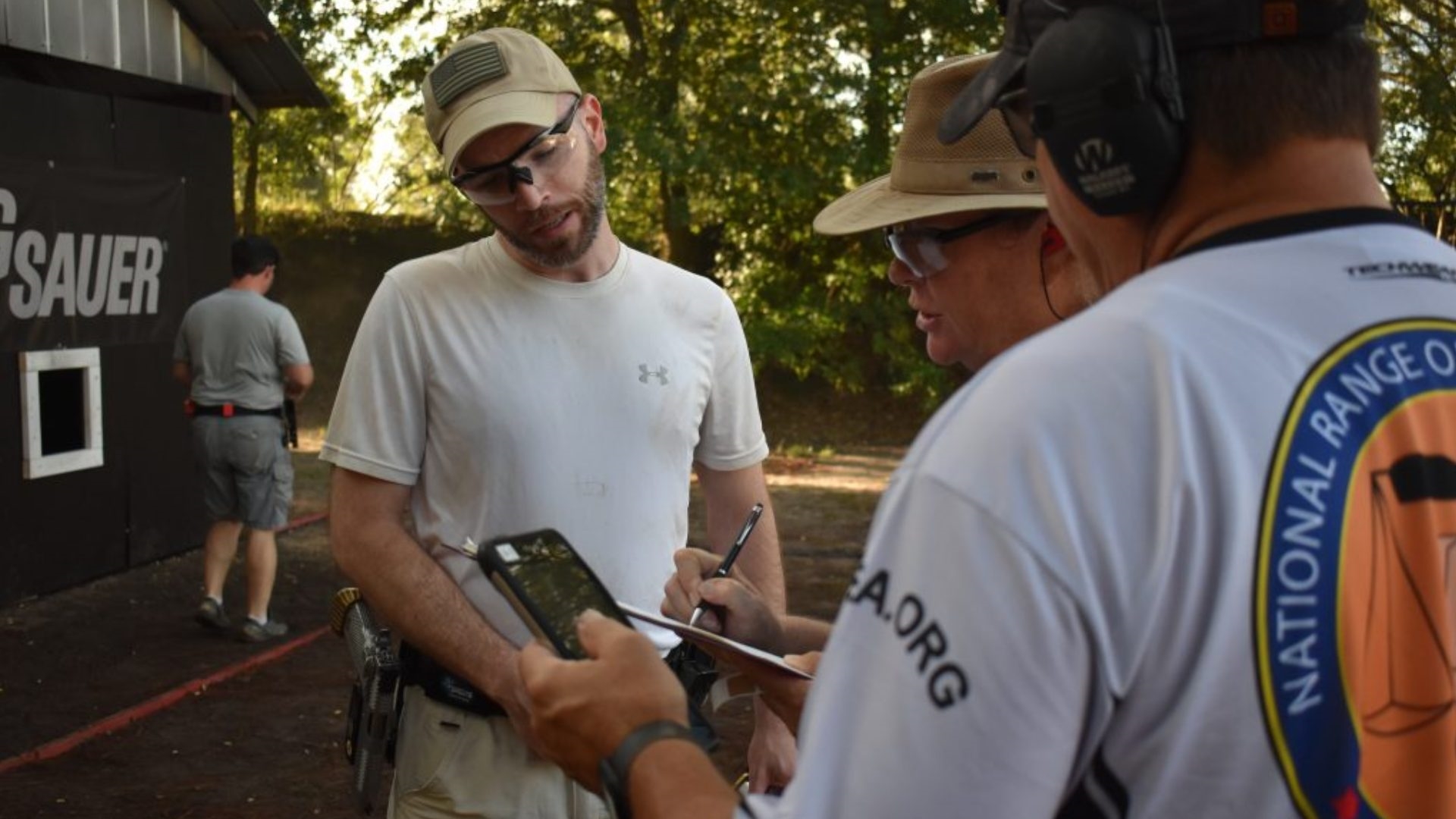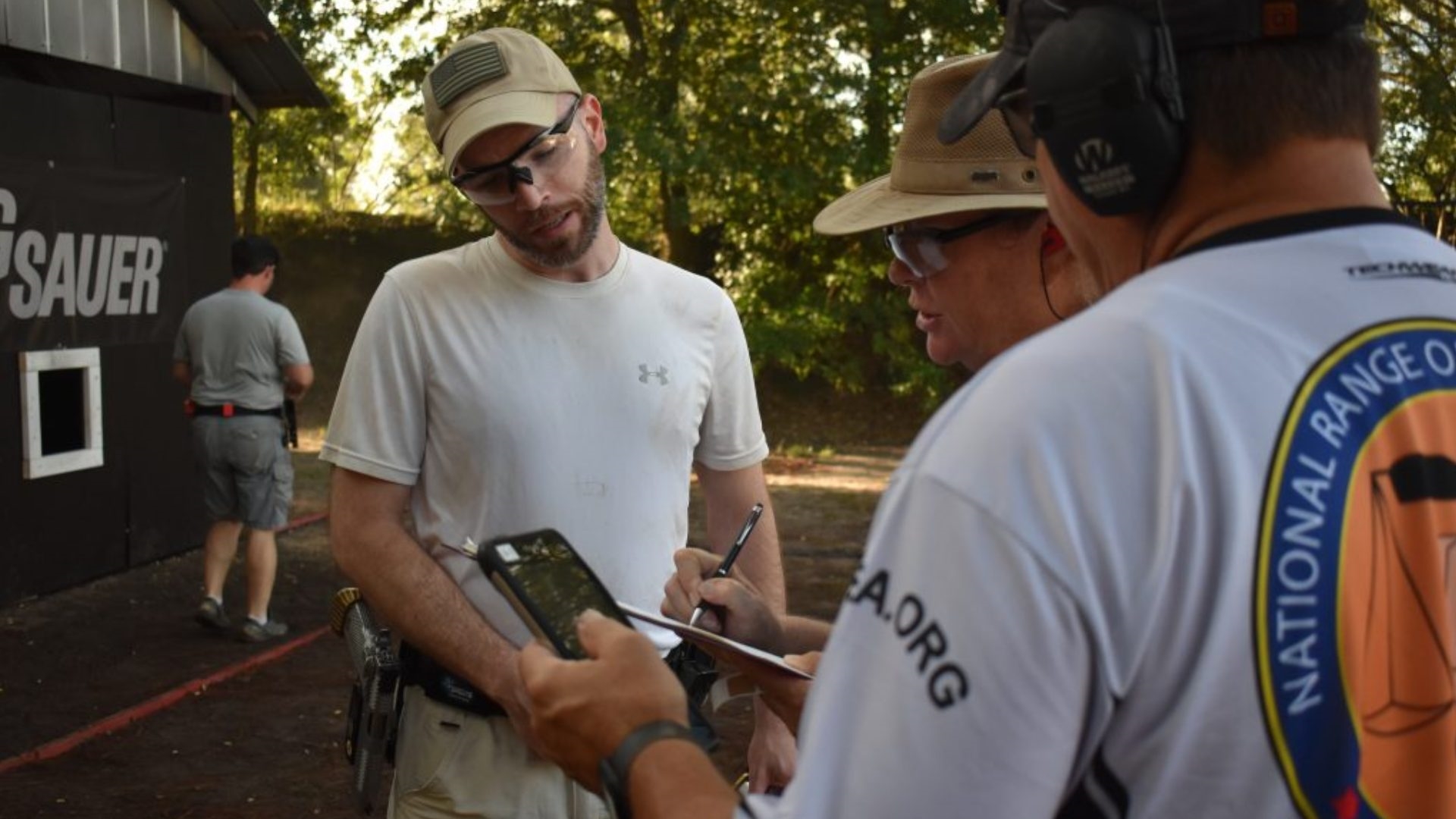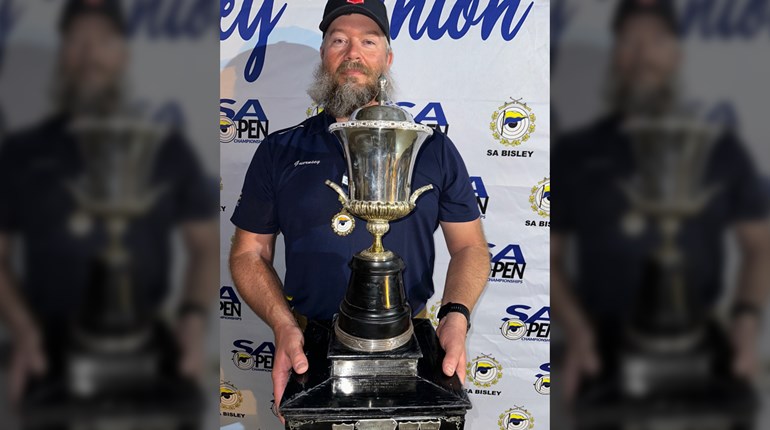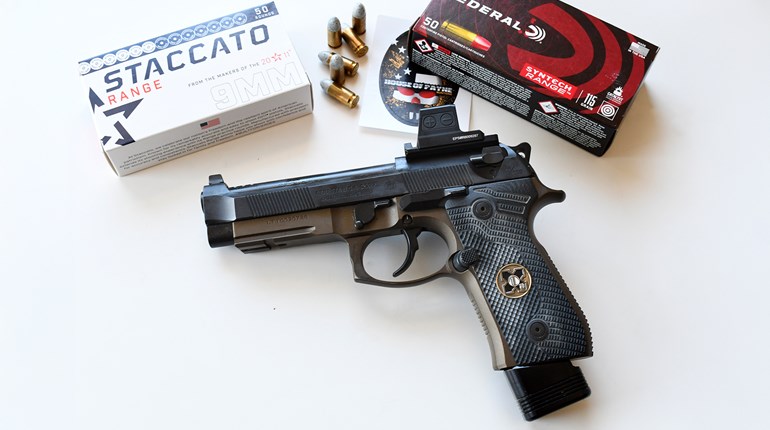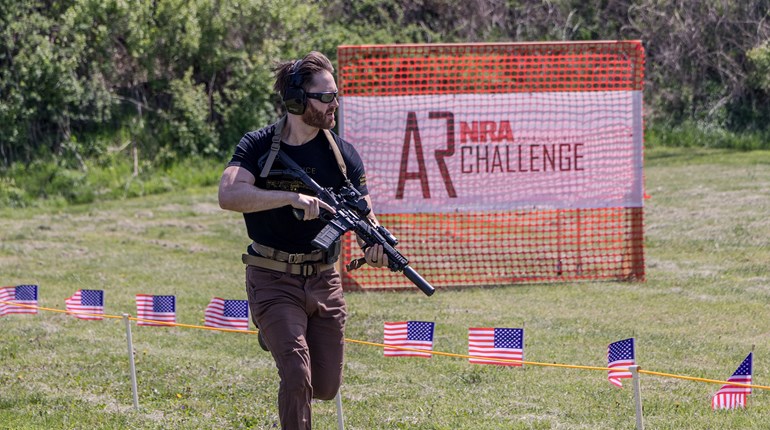
While not unprecedented, the cancellation of the National Matches is a rare occurrence. Currently, we have a situation that mimics one segment of National Matches history—the years spanning 1942 to 1953—that stand out as the most erratic. During that 12-year period, much like today, the American way of life was laced with uncertainty. Fortunately, as Americans we had the resolve to overcome reservation and reluctance in those years, and we will do so once again in the face of Covid-19.
Cancelling a national tournament is never taken lightly. Only six times in the history of competitive shooting has such drastic action taken place, most recently 70 years ago during the Korean War. But as the NRA noted in its statement released this past April, the coronavirus pandemic certainly qualifies for drastic action.
"Due to the current state of affairs surrounding Covid-19, the uncertainties associated with this pandemic at present, and shutdowns across our country that have impeded vital preparatory work, the National Rifle Association has made the difficult decision to cancel the 2020 NRA National Championships."
Thus, 2020 will mark the seventh time the “World Series of the Shooting Sports” won’t be on the summer calendar. And it’s not just the NRA Pistol, Smallbore and High Power Rifle Nationals at Camp Atterbury that fell victim to coronavirus. The CMP matches at Camp Perry were canceled around the same time in April as the NRA’s matches. As if all this wasn’t enough, sanctioned matches throughout the country were also canceled. (Note: NRA sanctioned matches are set to resume on July 1.)

The Past
As mentioned, there are only a few examples of canceled national championships to set precedent. Most were during wartime, but the first was in 1912 due to a situation that still often plagues summer shooting today—scheduling conflicts. When the National Board for the Promotion of Rifle Practice concluded that Army maneuvers conflicted with the proposed 1912 National Matches schedule, effectively pouring cold water on the entire event, the NRA held firm and conducted its own championships independent of the War Department. By doing this, the NRA ensured the perpetuality of the trophies and maintained the National Matches legacy. Held at Sea Girt, the storied range came back into prominence as the site for the 1912 NRA National Championships.
Although the build-up for World War I forced the cancellation of the 1917 National Matches, the NRA remained involved in the war effort. The NRA enlisted Gen. George Wingate to test the Model 1917 Enfield rifle for its suitability for combat as a “foreign rifle.” Wingate’s conclusion was that the Enfield was safe and as good under battle conditions as the beloved Springfield; thus dispelling any negative rumors about the rifle.
Similar to the situation in 1912, a lack of federal funds hampered efforts to conduct the 1926 National Matches and once again the NRA was forced to step in to fill the void. But unlike the circumstances 14 years earlier when demands on the Army was the reason for the cancellation, in 1926 government officials claimed economic cutbacks as the reason for the elimination of funding for the National Matches in the federal budget. All of the major NRA matches that year were once again shot at Sea Girt except for the Leech Cup, which was conducted in Washington state.
As was the case in 1926, the 1932 National Matches faced insurmountable financial hurdles. The Great Depression forced the withdrawal of federal appropriation for the National Matches. The NRA’s response to the elimination of the National Matches was to conduct regionals at Corps Area sites located around the country. Affectionately known as “Little Camp Perrys,” these matches were implemented by the NRA with the help of the Army, Navy, Marine Corps, National Guard and civilian state rifle associations. The “Little Camp Perrys” were held in California, Massachusetts, New Jersey, Virginia, Ohio, Illinois, Iowa, Texas and Washington.
While the National Matches were eliminated for a second straight year in 1933, the NRA was deeply rooted in its efforts to promote the shooting sports across the U.S., and the NRA Executive Committee wisely improved upon its 1932 efforts by encouraging state associations to conduct the year’s matches.

For the third straight year, in 1934 federal funds were not available for the National Matches. The War Department had reserved $75,000, but the President’s budget director eliminated the appropriation. To once again fill the void, the NRA organized regional pistol tournaments in conjunction with state rifle and pistol associations, as in previous years. The Smallbore Nationals were held on a smaller scale at Camp Perry.
In February 1942, the NRA Executive Committee moved to designate “no tournaments as ‘Official Regional’ or ‘National Championship’” that year. This decision was the first in a series of events that led to a tumultuous time in the history of the National Matches, leading to the transformation of Camp Perry into an active war facility that acted as a reception center for recruits and a POW camp.
It would not be until 1946 that National Matches would resume. The first to report this news was the June 1946 issue of NRA’s Tournament News (Shooting Sports USA’s predecessor) with the headline “Camp Perry Again!” At the time, Camp Perry was synonymous with the National Matches.
The March 1944 issue of American Rifleman sums up this period of the Nationals best. “The first gun at Pearl Harbor signaled the end for the duration of the war of the entire NRA program of competitive shooting.”
In the aftermath of World War II, the various National Championships were shot sporadically scattered and across the country. By 1950, once again the National Matches faced federal funding problems. NRA officials were all too familiar with the drill. The NRA moved forward once again without government dollars, making bold plans for combined rifle and pistol championships in San Francisco to be held in conjunction with that year’s Annual Meeting. But, the conflict in Korea led to the cancellation of the 1950 National Matches as well as the NRA’s convention.
The last time all three core NRA National Championships were conducted at the same venue was in 2013 at Camp Perry, ending a run that began in 1953. If all goes as planned, the next unified NRA Nationals will be at Camp Atterbury in 2021.
The Future
As a silver lining to all the doom and gloom that the coronavirus pandemic has brought us, the NRA alluded to future events at Camp Atterbury in the fall in its aforementioned statement. The 2020 NRA World Shooting Championship is still on the calendar as of this writing for September 16-19. And the Bianchi Cup, now under the stewardship of the Green Valley Rifle and Pistol Club, will also be held in September.

Perhaps the luckiest of all will be smallbore rifle competitors. When the NRA Smallbore Nationals begin their run at Camp Atterbury next year, some of the competitors will be able to claim that they have shot the National Championships at three different venues—Camp Perry, Chief Wa-Ke-De Range in Bristol, IN, and Camp Atterbury. Only shooters that were competing during the early 1950s, when the Korean War forced a short-term diaspora for the National Championships, can make a similar claim.
And of course, there is 2021. This author is optimistic about the future. As in years past, the NRA will be a force behind national shooting competitions through its tireless efforts to promote the shooting sports. See you on the firing line in Indiana at Camp Atterbury next summer.
For the latest championships updates, be sure to subscribe to the free SSUSA Insider newsletter.
See more: 2020 NRA Silhouette Nationals Canceled







